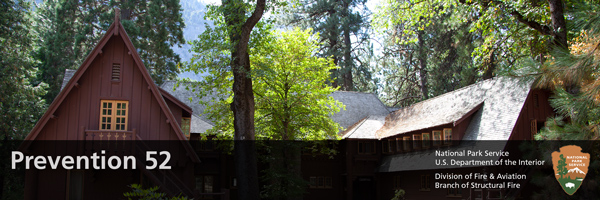
One of the National Park Service's more famous seasonal employees wrote about Big Bend in his book One Life at a Time, Please.
Half the pleasure of a visit to Big Bend National Park, as in certain other affairs, lies in the advance upon the object of our desire. Coming toward the park from the village of Lajitas deep in west Texas, we see this rampart of volcanic cliffs rising a mile above the surrounding desert. Like a castled fortification of Wagnerian gods, the Chisos Mountains stand alone in the morning haze, isolated and formidable, unconnected with other mountains, remote from any major range. Crowned with a forest of juniper, piñon pine, oak, madrone, and other trees the Chisos rise like an island of greenery and life in the midst of the barren, sun-blasted, apparently lifeless, stone-bleak ocean of the Chihuahuan Desert. An emerald isle in a red sea.
Know the Author? Keep Reading to Find Out
Where do you get to spend your summer? Seasonal employment with the National Park Service is a great way to hone skills, seek adventure, and earn some money during the summer. But this publication is not about adventure, it's about protecting our employees, visitors, partners, and resources from structural fire. So what does Prevention 52 have to do with seasonal employees?
Many seasonal employees live in dormitories or other group housing situations. Typically, these housing units have been unoccupied since last season. Across the Service conditions assessments have shown that too many buildings have inadequate or no smoke detection devices. This is especially critical in buildings where people sleep.
First and foremost, all parks should ensure that no employee lives or works in a building not equipped with smoke detection. Other things to consider for your seasonal employees:
- Seasonal employees are likely unfamiliar with evacuation procedures for the workplace and living accommodations. At a minimum, supervisors should ensure that they run fire drills at the beginning of each and every season.
- Seasonal employees are not likely to have had fire extinguisher training. Ensure that each employee is allotted the time to go to DOI Learn and take the NPS fire extinguisher class.
Quiz Answer
Author Edward Abbey wrote about his experiences as a seasonal park ranger in southeastern Utah in the book Desert Solitaire, published in 1968. He wrote the quote above as well.
Author Nevada Barr has written 17 novels that take place in national parks. She worked as a ranger in many of these park locales.
Fire Info for You
Seasonal Employees
Sign up and take the fire extinguisher class on DOI Learn. Search for NPS Annual Fire Extinguisher Education.
Permanent Employees
Make sure that your housing has working smoke detectors, that emergency numbers are posted on your phone, and that all of your family knows the emergency evacuation plan (even children).
Park Structural Fire Coordinators
- Have you had a Fire Protection Condition Assessment (FPCA) at your park? If not, contact your regional structural fire manager to find out how your park can complete the assessment. FPCAs show that over 10% of buildings where people sleep in the national parks do not have smoke detection installed. Does that statistic include your park?
- Ensure that facility and housing managers are aware of the potential dangers associated with clothes dryers and that all laundry facilities are properly maintained. If your park has concession housing, share this info with their housing manager also. Vent systems, in particular, need to be cleaned at least annually, and should be inspected regularly. Fire protection systems should be installed and maintained annually.
Superintendents
Superintendents are required to ensure that working smoke detectors be in all park buildings where people sleep. Take action if they are missing or inadequate. Place work orders and funding requests for the long term, but have smoke detectors installed immediately. NO NPS EMPLOYEE, CONCESSIONS EMPLOYEE, PARTNER, OR VISITOR should ever sleep in a building without smoke detection.
Regional/National Leadership
We have the data. We know the national parks have way too many employees, visitors, and partners sleeping in buildings that do not have adequate smoke detection. Regional directors, housing managers, and commercial services managers: Work within your parks and organizations to ensure that not one person sleeps in an NPS-operated building without smoke detection.
Take Action
- If you are a seasonal employee, ask your supervisors if the smoke detectors have been recently checked.
- Supervisors: DO NOT allow your seasonal employees to live in buildings that do not have adequate smoke detection. Check the smoke detectors yourself, then check them again periodically throughout the year to be sure nobody has tampered with them.
- People who sleep in a building with which they are unfamiliar may have trouble getting out in an emergency. It is essential that supervisors run fire exit drills at the beginning of the season. Make them unannounced and conduct them at different times of day.
- New employee, new location? Make sure they know what number to call in case of emergency.
NPS Fire Facts
On the evening of April 6, 2008, Glen Canyon National Recreation Area had a near miss when one of their concessions dormitories caught fire. For a breakdown of the incident and the story of the heroic efforts by park firefighters to save a trapped concessions employee, view this short PowerPoint presentation on InsideNPS.
Last updated: December 1, 2016
